One Step at a Time: Three initiatives encouraging movement for good
updated on Mar 15, 2018
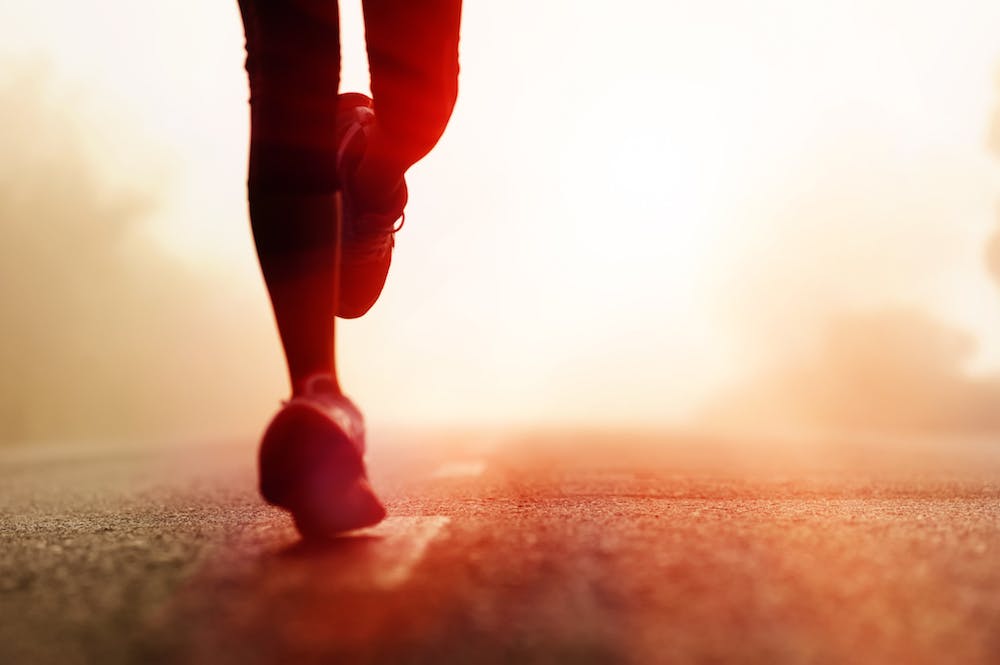
Whether it’s a walk around a park, a run with a friend, or a group mission to make daily life better for others, Happiful explores three initiatives encouraging movement for good
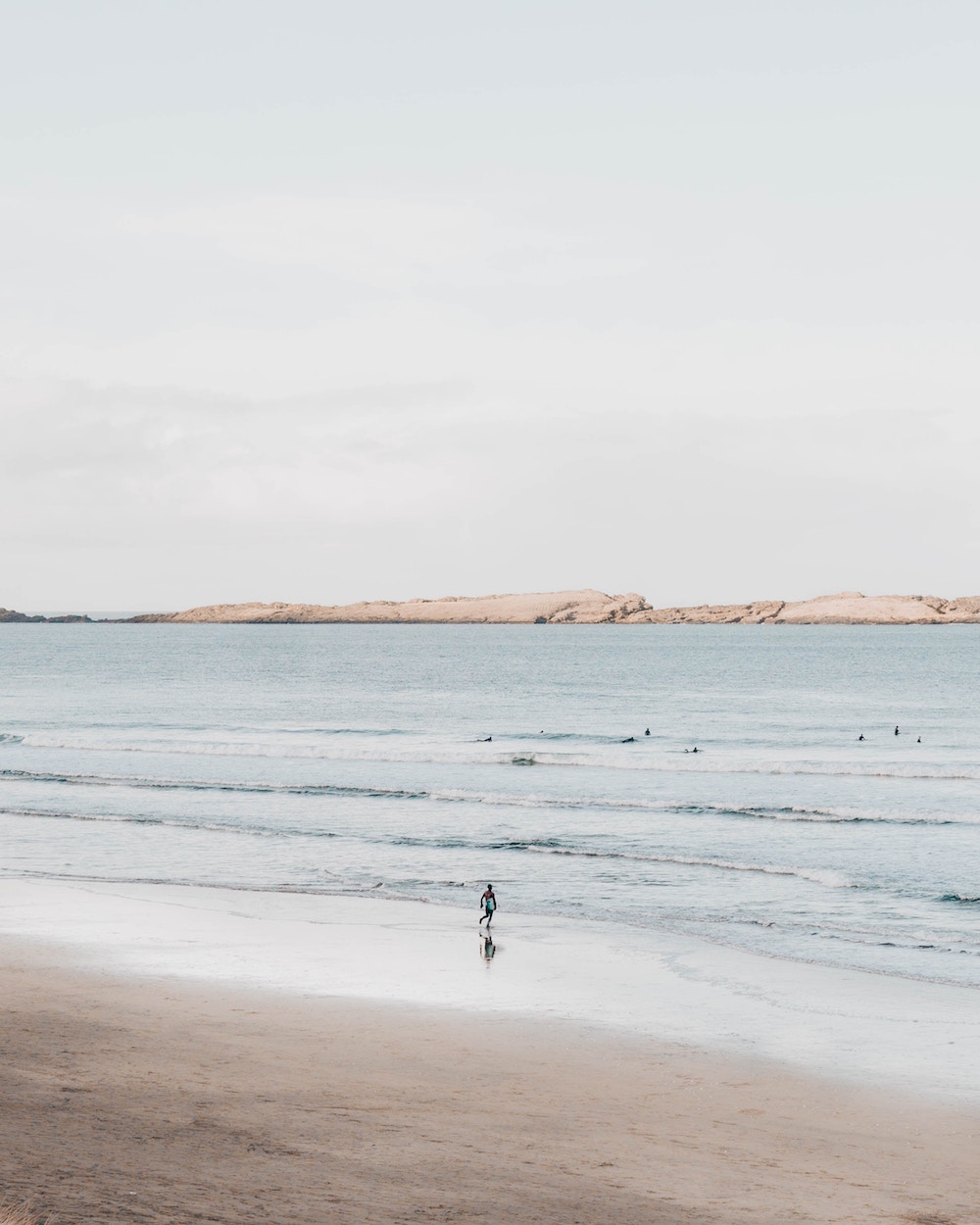
I know the moment I finish a run, or a long blustery walk, I feel better than I did before. Yet I also know that there are times when putting on your shoes and stepping out the door is a big challenge. If I could somehow bottle the feeling I get after being active and give myself just a little hit of it when I’m struggling, I’d be off the sofa in seconds.
Sometimes I need that bit of extra motivation, which usually comes in the form of committing to run with someone else. This works for me, as I don’t want to let someone down and there’s the added bonus of a social element to the exercise (and potential for coffee and cake afterwards). It’s a win-win!
Exercising with other people has so many benefits beyond motivation though. In his most recent book Run For Your Life, psychotherapist William Pullen explains that while running produces endorphins elevating both mood and thinking (often referred to as the “runner’s high”), running and talking with a companion can activate oxytocin as well (AKA the “love hormone”). This is created by sharing and giving trust and attention to another person while moving with them.
Imagine then, the feel-good effect of running with others and participating in projects to help the community in which you live? Or knowing that your run is supporting others in opening up about their own mental health? Or inspiring children to grow-up, comfortable with talking about how they’re feeling?
That’s exactly what three organisations are offering people – a way to connect doing good and feeling good. I discuss Dynamic Running Therapy and Empathy Runs with William Pullen, good deeds all round with GoodGym, and the impact of group talk and walks with Mental Health Mates.
Time to get those trainers on…
Dynamic Running Therapy and Empathy Runs
William Pullen’s revolutionary method is helping people work through their issues, one step and thought at a time, using
‘emotion in motion’ to connect to our feelings and inner dialogue
Dynamic Running Therapy (DRT) is not complicated, but rather, as William Pullen poses in his book Run For Your Life, about learning a couple of simple but very powerful techniques, and embarking on an exploration of who you are.
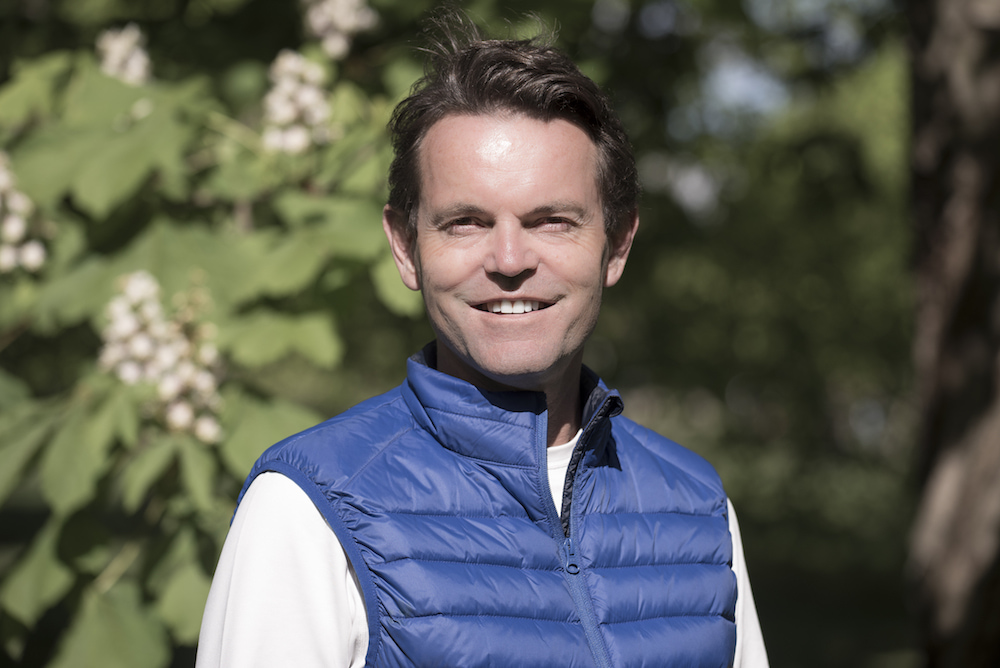
William Pullen
DRT is tried and tested. William developed his approach back in 2007 when he was experiencing challenges of his own. His journey began by finding refuge, space and quietness in London’s Hyde Park and starting to run – slowly at first due to his physical fitness – but improving over time. Running with a friend, he realised that the act of exercising – moving forward together – allowed them to have an open discussion, which felt both liberating and healing. A year later, he started six years of training to become a therapist, now champions DRT, and is an advocate of empathy runs for adults and children.
Tell us about the beginnings of DRT.
I was going through a crisis in my own life and took up a bunch of different activities, including running. I was a different person then – a heavy smoker and drinker. Running gave me something that therapy didn’t at that time: empowerment and progression.
Running with a friend gave us both a real sense of camaraderie. Each time we ran we could do a little more, loosening up and at the same time, really focusing on what each other had to say. It was mentally, as well as physically, therapeutic.
What is it about movement that lends itself to therapy?
I believe that it’s written in our DNA to move together and tell stories. If you think back to the Stone Age and hunter gatherers, that’s exactly what they would have done. It’s also more natural than sitting face-to-face and static; there’s a momentum there that carries you through your thoughts.

What about empathy running?
Empathy running, like DRT, is a concept that is hugely important to me, and I’ll be giving a TedX Talk on the subject in June. It’s based around two people moving side-by-side, running or walking, and one person really listening to the other speak without interrupting, and then reflecting back what they’ve heard at the end of the allotted time, or at the end of a run.
The same thing can be done with children. A group of school children can be split into pairs to do this and the results can be amazing. Children who don’t really know or even like one another, can gain more understanding of each other through this process. This also works incredibly well with children and their parents too. Running serves as a sort of distraction for children, helping them to stay focused and open up. They are also often quite excited to be running with the adults, meaning they begin from a positive and confident place.
What would you say to someone who is interested in DRT, but is struggling to get started?
I would say that no matter how hopeless you feel, anything is possible if you just put one foot in front of the other. That’s all you have to do – just keep on moving.
Download the Dynamic Running Therapy app from the App Store for free. ‘Run For Your Life’ by William Pullen is available in bookshops and online now.
Follow William @pullentherapy
GoodGym
Forget the stats on your fitness tracker, GoodGym have a set of numbers that need to be celebrated by us all. In 2017 alone, GoodGym (currently at 5,500 members) logged more than 33,000 good deeds and supported more than 1,000 older people
Founded in 2009, GoodGym started life in Tower Hamlets, London, and now operates in 40 areas across the UK. The concept is simple and brilliant: GoodGym combines free group exercise, with helping community organisations and isolated older people.
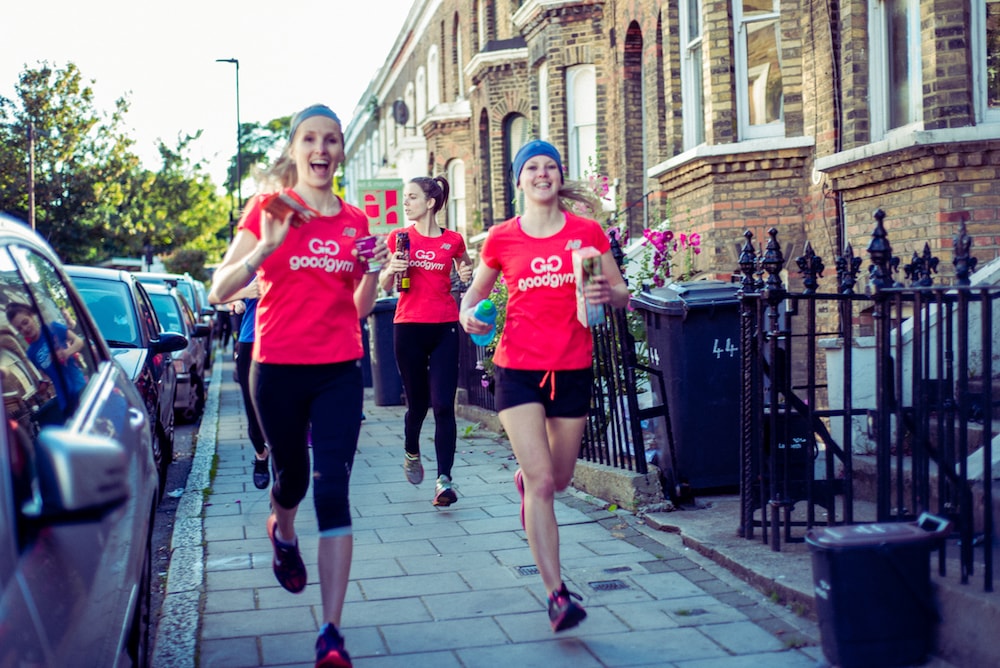
Some GoodGym runners are paired with isolated older people, who they run to visit socially each week. Research shows that more than one million older people are always or often lonely, going for weeks at a time without seeing friends or family. GoodGym is tackling this head on and with respect, calling the older people they visit “coaches” because they help keep members motivated to run and share words of wisdom with them.
GoodGym members also run in groups to local organisations that need help, completing tasks like shovelling earth for community gardens, planting trees or clearing derelict land, and then run back, all within 90 minutes. Group runs are led by qualified running coaches who help members with their running technique, and support them to achieve their fitness goals. Members get fit, while doing good.
Ellie Fry first joined GoodGym in London, and continued her membership when she moved to Bristol earlier this year.
What was your first experience of GoodGym?
I turned up to Battersea Arts Centre not knowing what to expect and was greeted by such a warm welcome, it felt like I’d been part of the running club for ages! The first task was leaflet dropping for a local community gardens project (running to and from all the destinations).
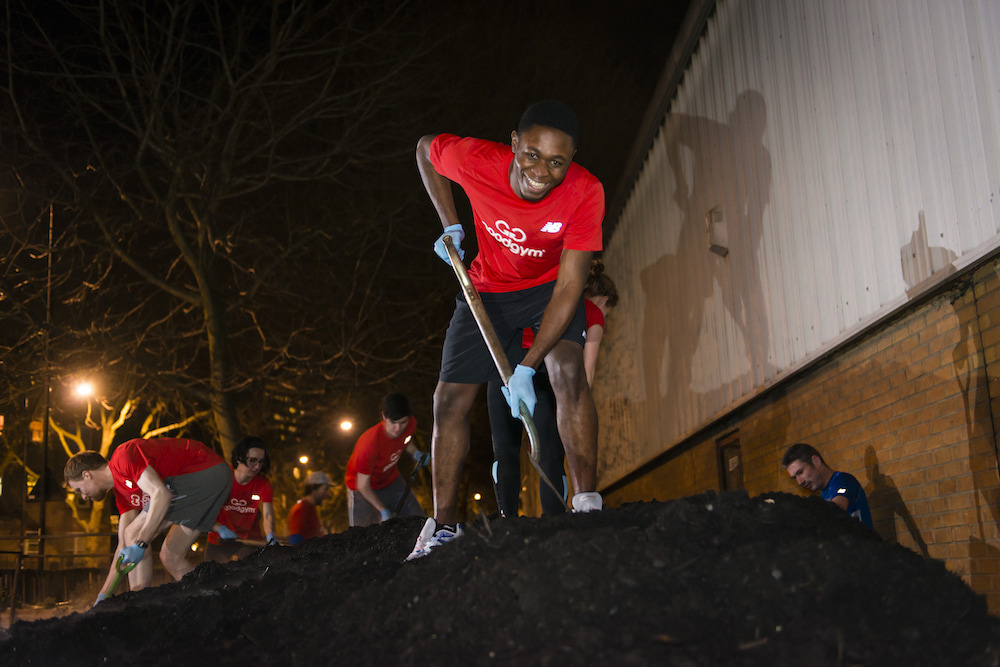
Tell us about some of the community work you’ve done?
The “missions” are so varied – from leaflet dropping to helping clean a hospice. Since moving to GoodGym Bristol, I’ve been involved in litter collecting down at the Avon Gorge and helping a community garden project (Haven), which offers support to local communities.
How has being part of GoodGym helped you?
I love the whole ethos. Run. Volunteer. Meet like-minded people. There’s something so rewarding about doing activities that help the local community, rather than just running on a treadmill or pumping iron in the gym.
What would you say to someone thinking of joining?
Go for it! It’s amazing how many groups there are now all across the country.
GoodGym is always open to new members, whatever their fitness level. For more information, visit www.goodgym.org
Mental Health Mates
On 14 February 2016, 20 people met to walk together, following a call-out on social media by journalist Bryony Gordon, who, at the time, was struggling with her mental health. Fast-forward two years and there’s almost 60 Mental Health Mates Groups across the UK and meet-ups in Dubai, Melbourne and San Francisco
Mental Health Mates was born out of “a terrible funk” Bryony Gordon was going through as she was writing Mad Girl, a memoir about her mental health. A documentary she was listening to while out running, inspired her to bring together groups of people who were feeling alone and struggling with their mental health too.
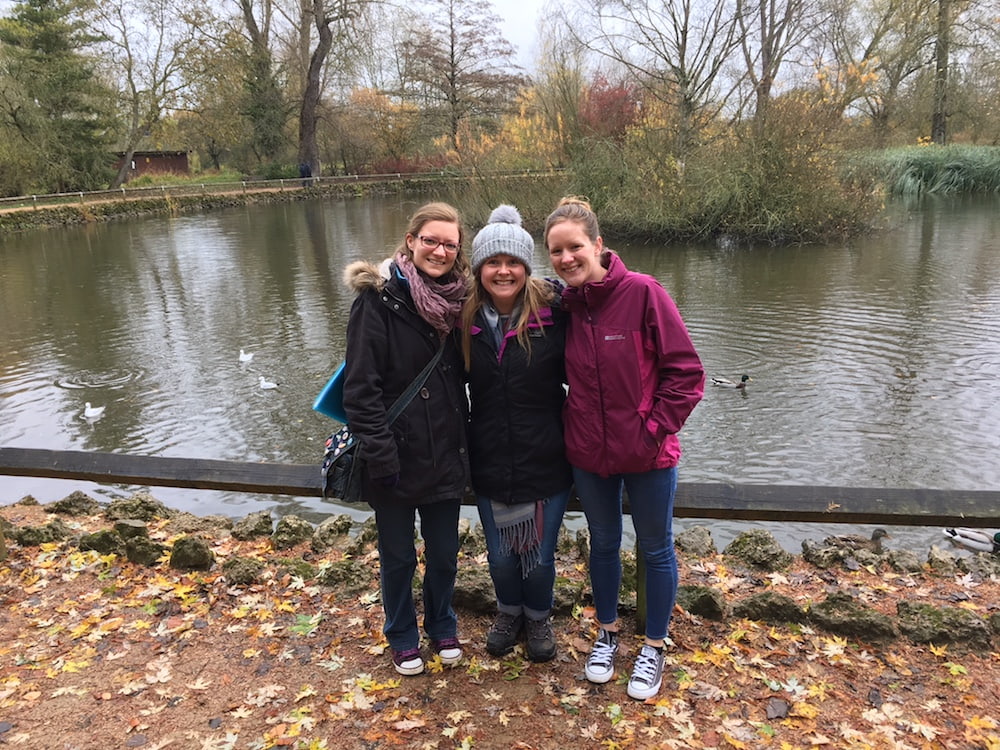
mental health mates meeting
Over the past two years, MHM has “grown beyond her wildest dreams”, and groups have now popped up all across the UK and beyond, run by a dedicated group of volunteers and walk leaders, showing there’s a real need for these collective and informal support networks.
Kate leads the Mental Health Mates Walks in Oxford with her friend Jess.
How did you hear about Mental Health Mates?
I read an article by Bryony in Cosmopolitan and she was looking for people to start their own MHM groups across the country. I think it’s really important that we all do more to support and connect with one another, so I got in touch. I received the walk leader’s pack and chatted with Jess, who agreed to start an Oxford MHM group with me. Doing it together means that we can support one another.
Tell us about your first walk?
Our first walk was in November 2016, starting in the University Parks – an absolutely beautiful place. We had no idea if anyone would come – but they did. It was a small group, but it felt so good to get together and connect. We’ve held a MHM walk almost every month since, and some of the people who came to that first walk still join. It’s a very close-knit group – though we actively welcome new people every month.

mental health mates meeting
What can people expect from a Mental Health Mates Walk?
We’re all regular people, none of us are trained counsellors but we know and appreciate that we all have our struggles. That being said, you don’t have to talk about your mental health during one of the walks; we talk about all sorts. It’s a really friendly and non-judgemental atmosphere.
What would you say to someone who wants to come, but is struggling?
We understand. There is no pressure from us on the walk or at any time. We are there every month and you’ll be welcome any time.
To find and join your nearest Mental Health Mates walk, visit mentalhealthmates.co.uk

